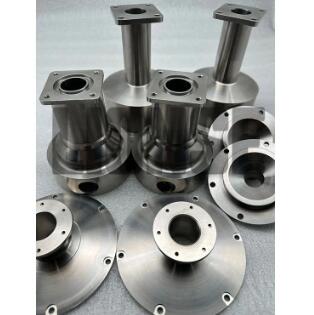Why Titanium is the Ideal Material for Marine Equipment
2024-08-29
When it comes to marine equipment, the materials used need to withstand some of the harshest environments on the planet. Saltwater, high pressure, and constant exposure to the elements can quickly wear down even the most robust materials. Enter titanium—a metal that has become a game-changer in the world of marine engineering. In this blog, we’ll explore why titanium is the ideal material for marine equipment and how its unique properties make it indispensable for maritime applications.
The Challenges of Marine Environments
Marine environments are notoriously unforgiving. Saltwater is highly corrosive, and the constant movement of waves, tides, and currents adds mechanical stress to any equipment. In addition, marine equipment often needs to endure extreme temperatures and pressure, especially in deep-sea applications. These challenges require materials that are not only strong but also resistant to corrosion and fatigue.
Traditionally, stainless steel and aluminum have been used in marine applications, but both materials have limitations. Stainless steel, while strong, can corrode over time in saltwater, leading to maintenance challenges and potential failures. Aluminum is lightweight but lacks the strength needed for heavy-duty applications.
Why Titanium?
Titanium stands out as a superior material for marine equipment due to its exceptional properties:
1. Corrosion Resistance: Titanium is highly resistant to corrosion, even in saltwater environments. This resistance is due to the formation of a stable oxide layer on its surface, which protects it from the corrosive effects of seawater. Unlike stainless steel, titanium does not rust, which significantly extends the lifespan of marine components.
2. Strength-to-Weight Ratio: Titanium has an excellent strength-to-weight ratio, meaning it is as strong as steel but much lighter. This makes it ideal for applications where weight is a critical factor, such as in boat hulls, propellers, and underwater equipment.
3. Durability: Titanium is incredibly durable and resistant to fatigue. It can withstand the constant stresses of a marine environment without cracking or deforming, making it perfect for long-term use in challenging conditions.
4. Biocompatibility: While not as critical in marine applications as in medical fields, titanium’s biocompatibility ensures that it is non-toxic and does not leach harmful substances into the environment, making it an eco-friendly choice for marine applications.
5. Thermal Stability: Titanium maintains its mechanical properties over a wide range of temperatures, from freezing depths to high-temperature exhaust systems, making it versatile for various marine applications.
Common Applications of Titanium in Marine Equipment
Titanium is used in a wide range of marine equipment, including:
- Propeller Shafts: Titanium’s strength and resistance to corrosion make it an ideal material for propeller shafts, which must endure constant immersion in saltwater and the mechanical stresses of propulsion.
- Hull Structures: Lightweight yet strong, titanium is increasingly being used in the construction of boat and submarine hulls, offering superior performance compared to traditional materials.
- Fasteners and Connectors: Titanium fasteners and connectors are used in marine environments where resistance to corrosion is crucial. They are particularly valuable in applications where maintenance or replacement is difficult, such as deep-sea exploration equipment.
- Heat Exchangers: Titanium heat exchangers are used in marine systems where seawater is used as a cooling medium. Titanium’s resistance to corrosion and high thermal conductivity make it ideal for this application.
The Future of Titanium in Marine Engineering
As marine technology advances, the demand for materials that can withstand extreme conditions will continue to grow. Titanium’s unique properties make it a material of choice for the future of marine engineering. While it is more expensive than other metals, its durability, low maintenance requirements, and performance benefits make it a cost-effective solution in the long run.
Conclusion
Titanium has revolutionized marine equipment, offering unparalleled resistance to corrosion, high strength, and durability. Its application in the marine industry is a testament to its superiority over traditional materials like stainless steel and aluminum. As the maritime industry continues to evolve, titanium’s role in ensuring the reliability and longevity of marine equipment will only become more significant.



